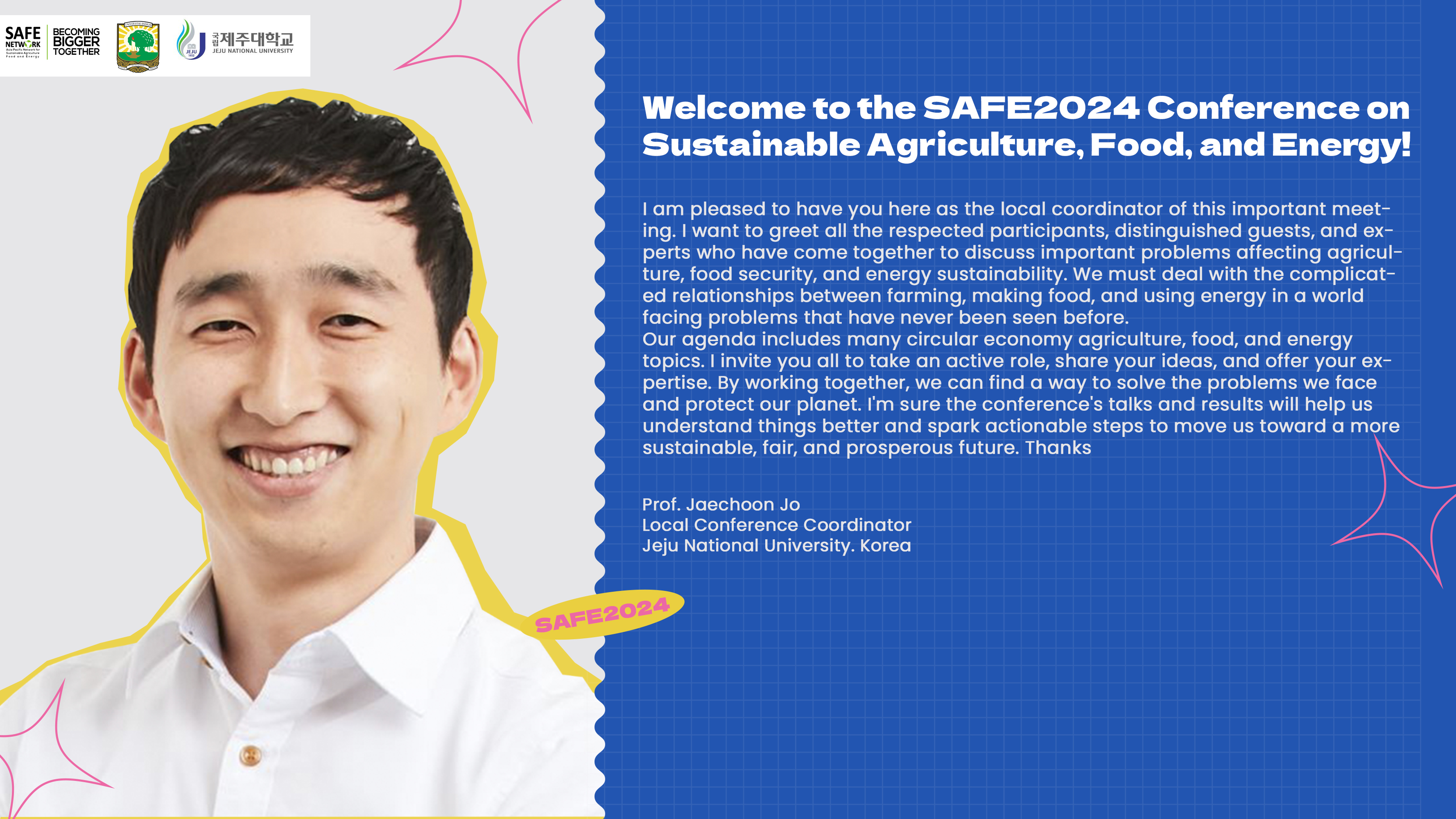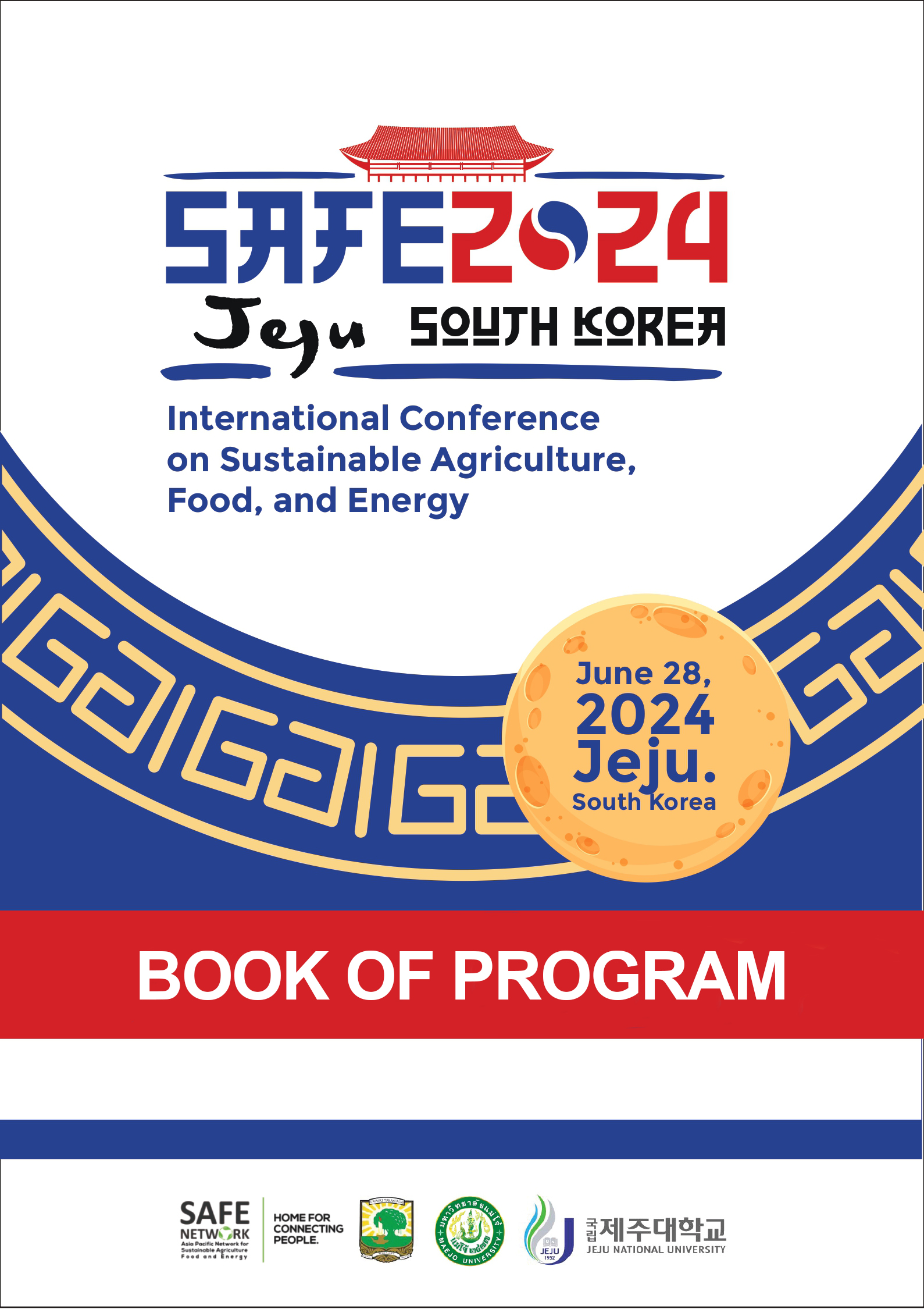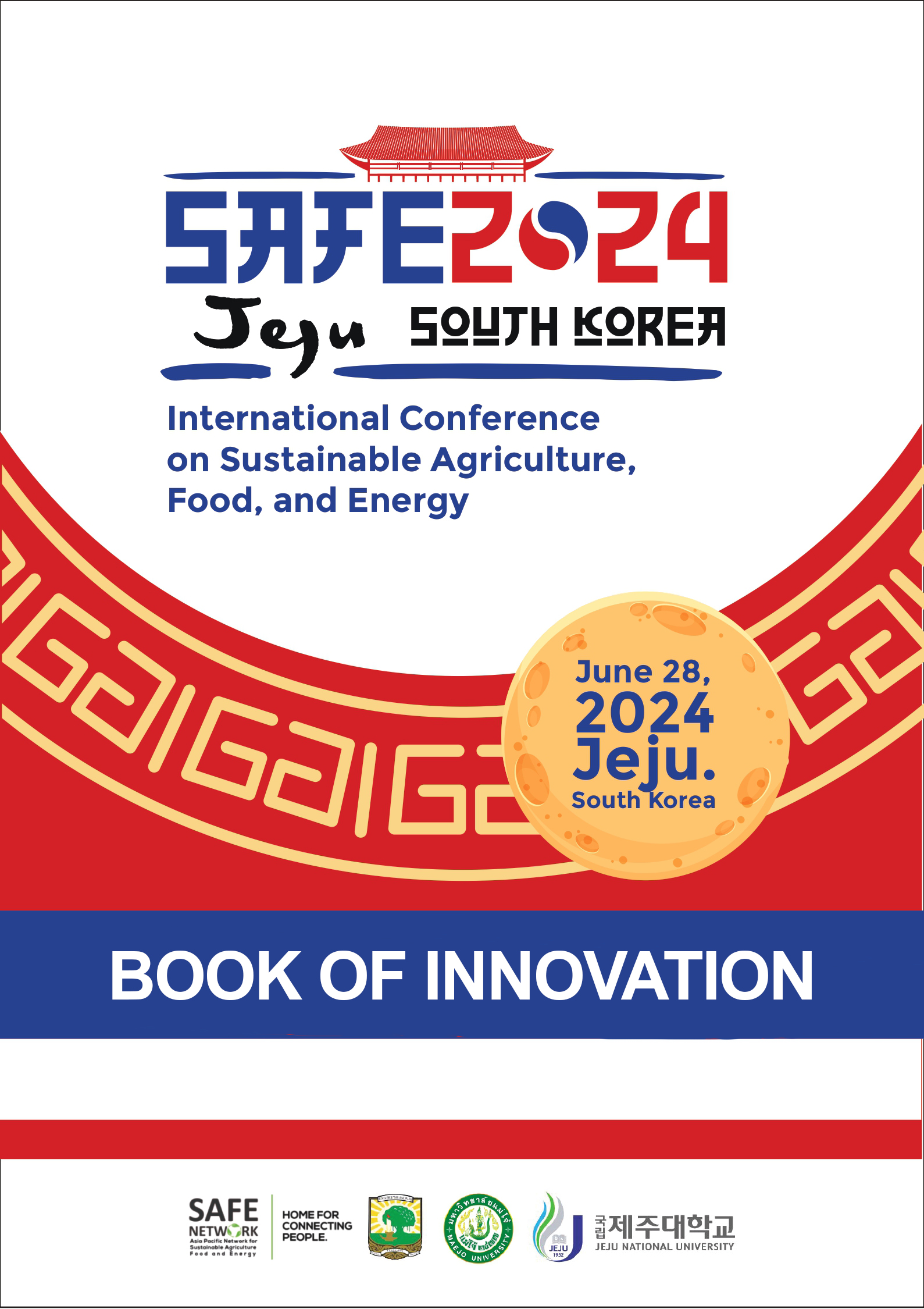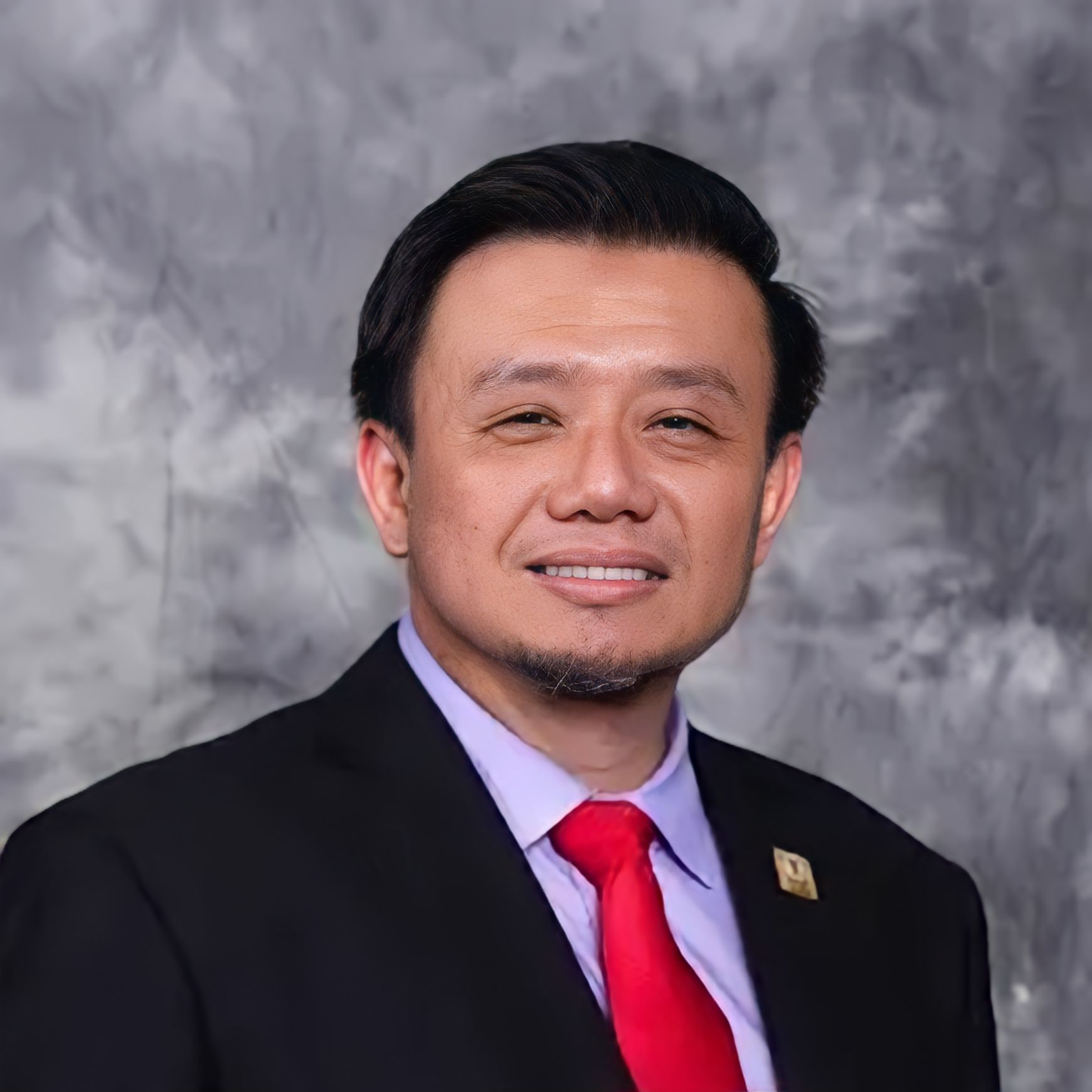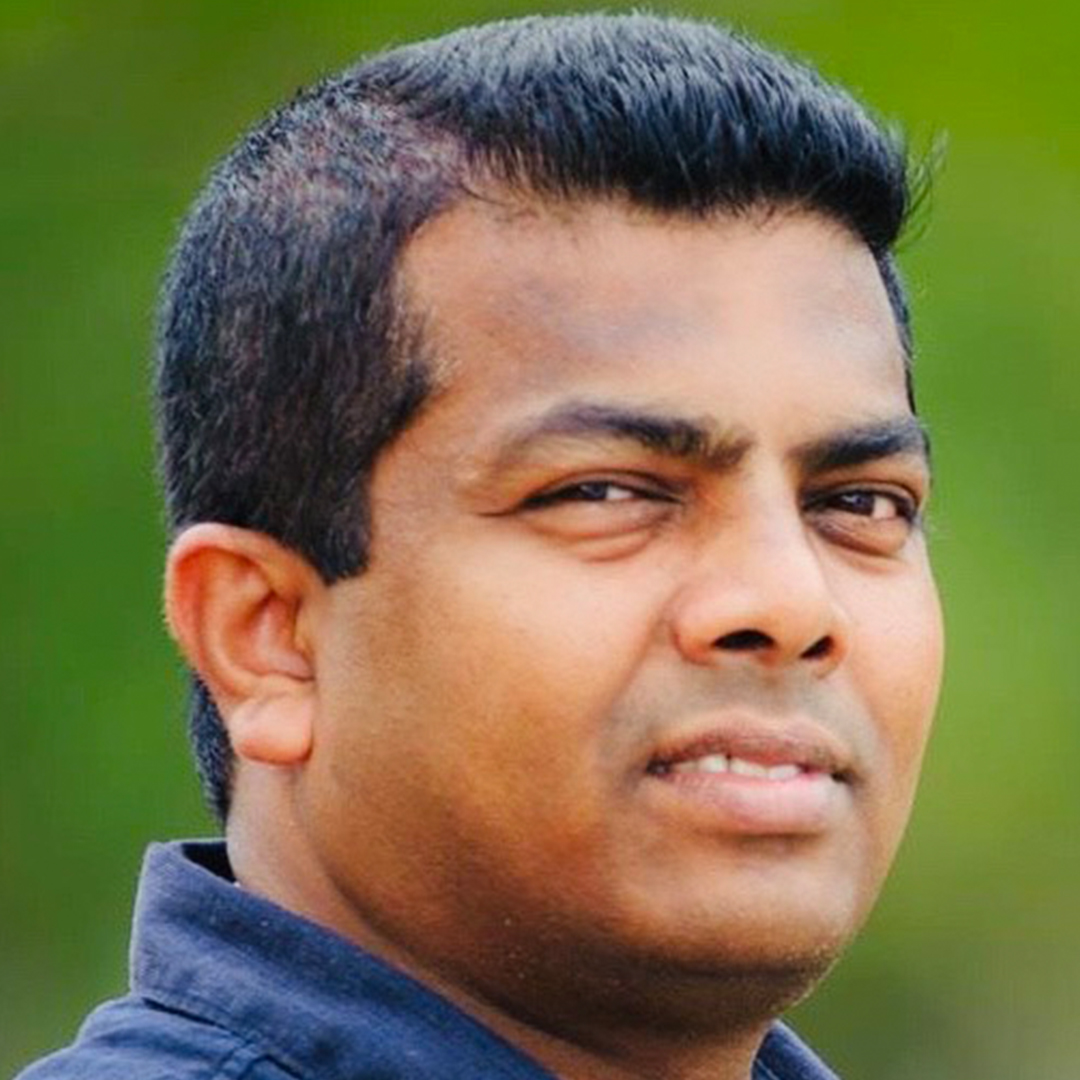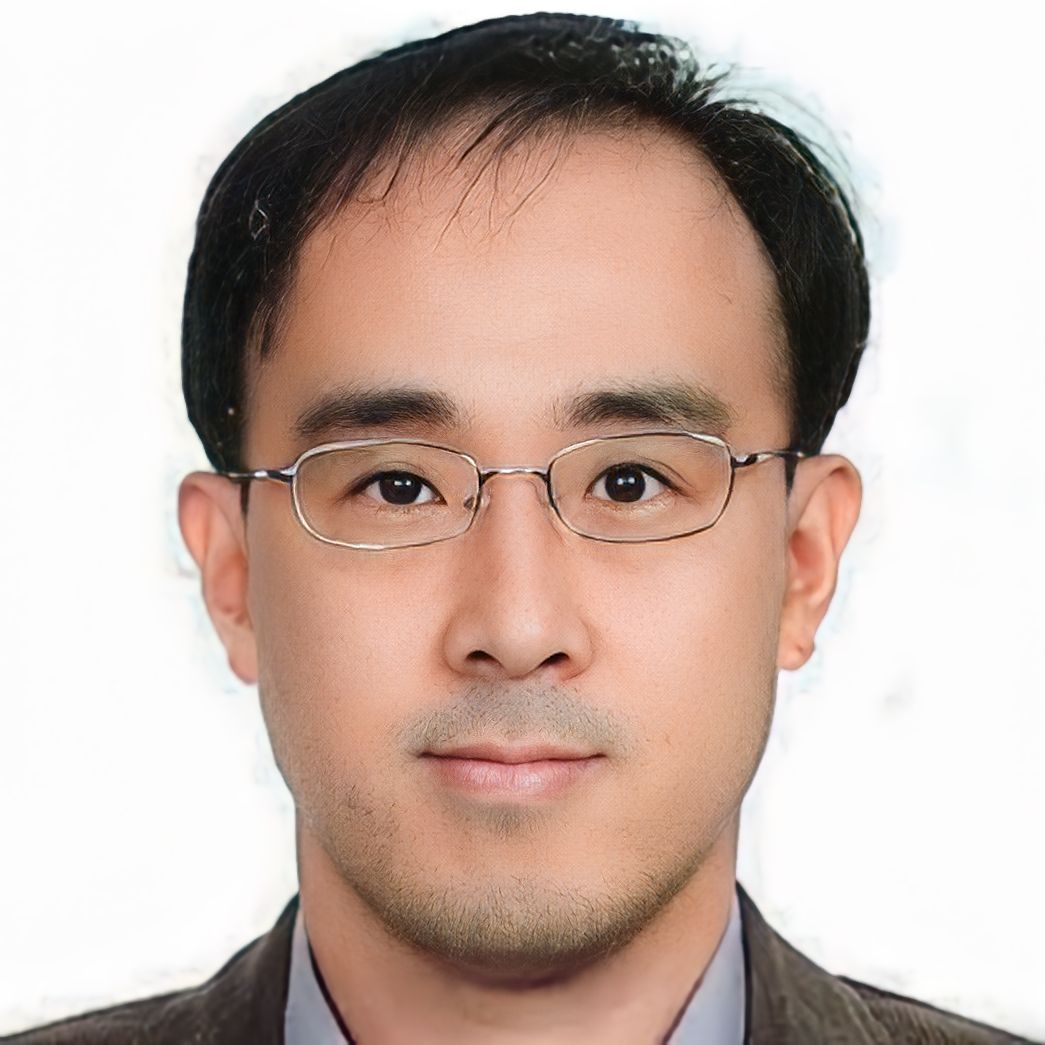Welcome to SAFE 2024, Jeju. South Korea
We are excited to inform you that the International Conference on Sustainable Agriculture,
Food, and Energy (SAFE2024) will occur on June 28, 2024, in Jeju (South Korea).
The conference theme is Circular Economy Implementation in Agri-food Energy Production
for Community Empowerment. The core principle of a circular economy is around the minimization
of waste, the promotion of sustainability, and the optimization of resource utilization.
When included in the generation of energy in the agricultural and food sectors, it has the
potential to establish a system that is more resistant to disruptions and capable of maintaining itself.
This is an example of how the implementation could appear. By incorporating the ideas of the circular
economy
into agri-food energy production, communities can experience improved resilience, decreased environmental
harm,
and higher economic prospects, ultimately leading to empowerment and sustainable development.
Looking forward to welcoming you all at SAFE2024!
About SAFE2024
This is the 10th conference after the first International Conference on
Sustainable Agriculture, Food,
and Energy (SAFE2013), held in Padang, Indonesia, from May 12th to May 14th, 2014. The second conference,
SAFE2014, was held in Bali, Indonesia, from September 17th to September 19th, 2014. AFE2015, the third
conference,
occurred in Ho Chi Minh City, Vietnam, from November 17th to November 19th, 2015. SAFE2016, the fourth
conference,
occurred in Colombo, Sri Lanka, from October 20th to 22nd, 2016. SAFE2017, the fifth conference, took place
in
Malaysia from August 22nd to 24th, 2017. The sixth conference, SAFE2018, occurred in Manila, Philippines,
from October 19th to 21st, 2018.
The seventh conference, SAFE2019, took place in Phuket, Thailand, from October 19-21, 2019; The 8th
conference of SAFE2022, in Istanbul,
Turkey (October 17, 2022); and the 9th conference of SAFE2023, in Chiang Mai, Thailand (May 28-29, 2023).
Objectives
The objectives of the conference are:
- To provide a forum for the international researcher's
community to exchange and share experiences, new ideas, sustainability concepts, and research
results on sustainable agriculture, food, and energy.
- To promote collaboration in sustainable agriculture, foods,
and energy production research.
- To establish regional networking among participants on
sustainable agriculture, food, and energy.
- To increase awareness of the importance of living and
working in a manner that enhances our community's economic, environmental, and social well-being
through research, education, regional partnerships, and community engagement.
Call for Paper
Call for Paper
We are pleased to announce a call for papers for our upcoming Conference, "Sustainable Agriculture, Food,
and Energy (SAFE2024" This Conference aims to gather scholars, researchers, academics, and practitioners to
explore innovative approaches, challenges, and opportunities at the intersection of sustainable agriculture,
food production, and energy systems.
Topics
- Innovation in Sustainability related to Agriculture, Food,
and Energy
- Sustainable Food Science and Technology
- Sustainability Development and Management
- Agriculture and Environment
- Sustainable Product Development
- Sustainable Development Goals (SDGs)
- Socio-Economic Related to Agriculture, Food, and Energy
- Information Technology
- Circularity in agriculture, food, and energy
Publications
Call for Innovation
Welcome innovators!
"Lab to Blueprint: Bring Science Closer to the Community" is the theme of this year's Product
Innovation
Competition. The Product Innovation Competition is part of this year's SAFE-Network agenda, which fits with
the theme of the meeting. This Innovation Competition aims to show the community new ideas from a study by
SAFE members and SAFE2024 participants.
Innovation is the process of renewing or improving a field, product, or service using new methods,
techniques, or ideas that have already been proven to work. Innovation in business means developing new
goods, services, processes, and business models for customers, making them available and bigger. This can
lead to a lot of net new growth. Innovation can be a brand-new idea or a change to a product, idea, or
existing area. To be innovative, you need to take stock and figure out how it's working, whether through
polls of happy customers or by looking at sales numbers. Innovation means coming up with new ideas, designs,
or goods.
Innovation is important because it can help businesses stay ahead of the competition and grow
simultaneously. Another reason is that businesses often need innovation to adapt to and overcome change
challenges. Innovation makes it easier to adapt to new situations and find new opportunities, giving you a
competitive edge and helping you make better products and services for customers. Innovation can help solve
social problems and improve the world. Innovation gives companies an edge in entering new markets faster and
a stronger connection with customers. Innovation is important because it helps companies improve their goods
and services and be more useful and profitable. In today's very competitive business world, it's also
important for companies to stay fresh and competitive.
This event will always happen at the SAFE meeting every year, and it's expected to lead to many useful new
ideas for the community.
Once more, welcome, Innovator!
Download Product Innovation Guide
JOIN NOW!


